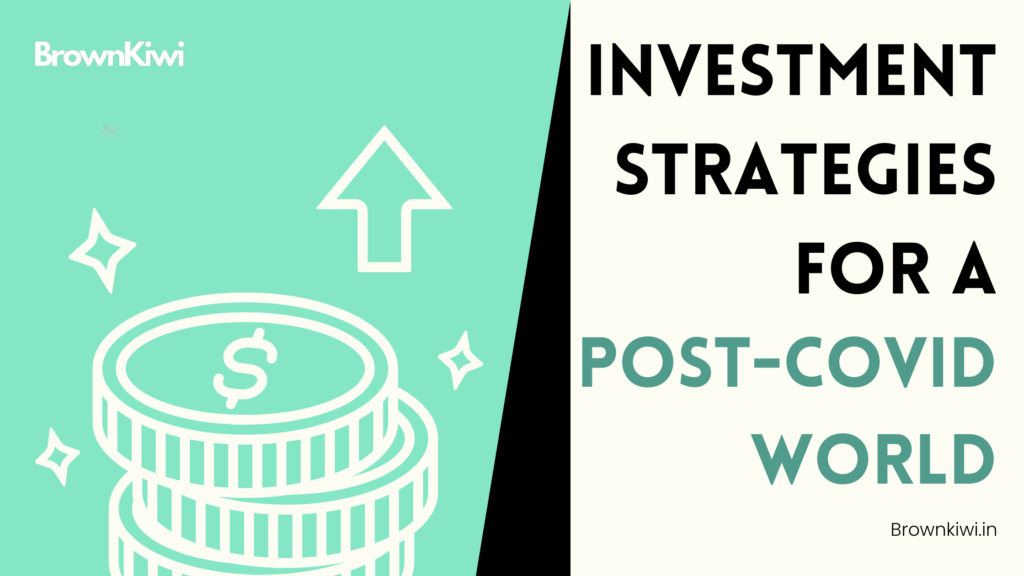
Table of Contents
ToggleInvestment Strategies for a Post-COVID World
The COVID-19 pandemic has significantly altered the investment landscape, challenging traditional strategies and prompting investors to adapt to a new normal. As the world navigates through the aftermath of the crisis, it’s crucial to reevaluate investment approaches and explore opportunities that align with the evolving global scenario.
Introduction
The COVID-19 pandemic disrupted economies worldwide, causing market volatility and uncertainty. Investors witnessed sharp fluctuations in asset prices and were compelled to reassess their investment strategies. Understanding the impact of COVID-19 on investments is essential for devising effective post-pandemic strategies.
Reevaluating Investment Goals
In a post-COVID world, investors need to reassess their goals and priorities. The pandemic highlighted the importance of financial security and stability. As individuals and businesses adapt to new norms, investment goals may shift towards resilience and long-term sustainability.
Diversification: A Crucial Strategy
Diversification remains a fundamental principle of investment strategy, especially in uncertain times. Spreading investments across different asset classes helps mitigate risk and enhances portfolio resilience. In a post-COVID world, diversification becomes even more critical to navigate through market uncertainties.
Embracing Technology and Innovation
The pandemic accelerated digital transformation across various industries, making technology and innovation-focused investments highly attractive. Companies offering innovative solutions for remote work, healthcare, and e-commerce experienced significant growth. Investing in tech and innovation sectors can yield promising returns in a post-COVID world.
Sustainable and Ethical Investing
The pandemic underscored the importance of environmental, social, and governance (ESG) factors in investment decisions. Sustainable and ethical investing has gained traction as investors seek to align their portfolios with values-driven initiatives. Investing in companies committed to sustainability can generate financial returns while contributing to positive social and environmental impact.
Real Estate Investments in a Post-COVID World
The real estate sector underwent substantial changes due to the pandemic, with shifts in demand for residential, commercial, and industrial properties. While traditional office spaces faced challenges, opportunities emerged in areas like remote work infrastructure and healthcare facilities. Investing in real estate requires careful consideration of evolving trends and market dynamics in a post-COVID world.
Emerging Markets: A New Frontier
Emerging markets present exciting opportunities for investors seeking growth prospects. Despite facing challenges during the pandemic, emerging economies demonstrate resilience and potential for robust economic recovery. Investing in emerging markets requires thorough research and understanding of local dynamics to capitalize on growth opportunities while managing risks effectively.
Conclusion
Navigating the investment landscape in a post-COVID world requires agility, adaptability, and strategic foresight. By reevaluating investment goals, embracing diversification, and exploring emerging opportunities in technology, sustainability, real estate, and emerging markets, investors can position themselves for success amidst uncertainty.
Frequently Asked Questions
How has COVID-19 impacted traditional investment strategies
COVID-19 has disrupted traditional investment strategies by causing market volatility and uncertainty, prompting investors to reassess their approach towards risk management and portfolio diversification.
What role does technology play in post-COVID investment strategies?
Technology plays a significant role in post-COVID investment strategies, with opportunities emerging in sectors such as remote work solutions, healthcare technology, and e-commerce platforms.
Why is sustainable investing gaining popularity among investors?
Sustainable investing is gaining popularity among investors due to growing awareness of environmental and social issues, as well as the potential for financial returns from companies committed to responsible business practices.
What considerations are important for investing in real estate post-COVID?
Important considerations for investing in real estate post-COVID include assessing shifts in demand for different property types, understanding remote work trends, and identifying opportunities in emerging sectors such as healthcare infrastructure.
How can investors navigate risks in emerging markets post-COVID?
Investors can navigate risks in emerging markets post-COVID by conducting thorough research, diversifying their portfolios, and staying informed about local economic and political dynamics.
